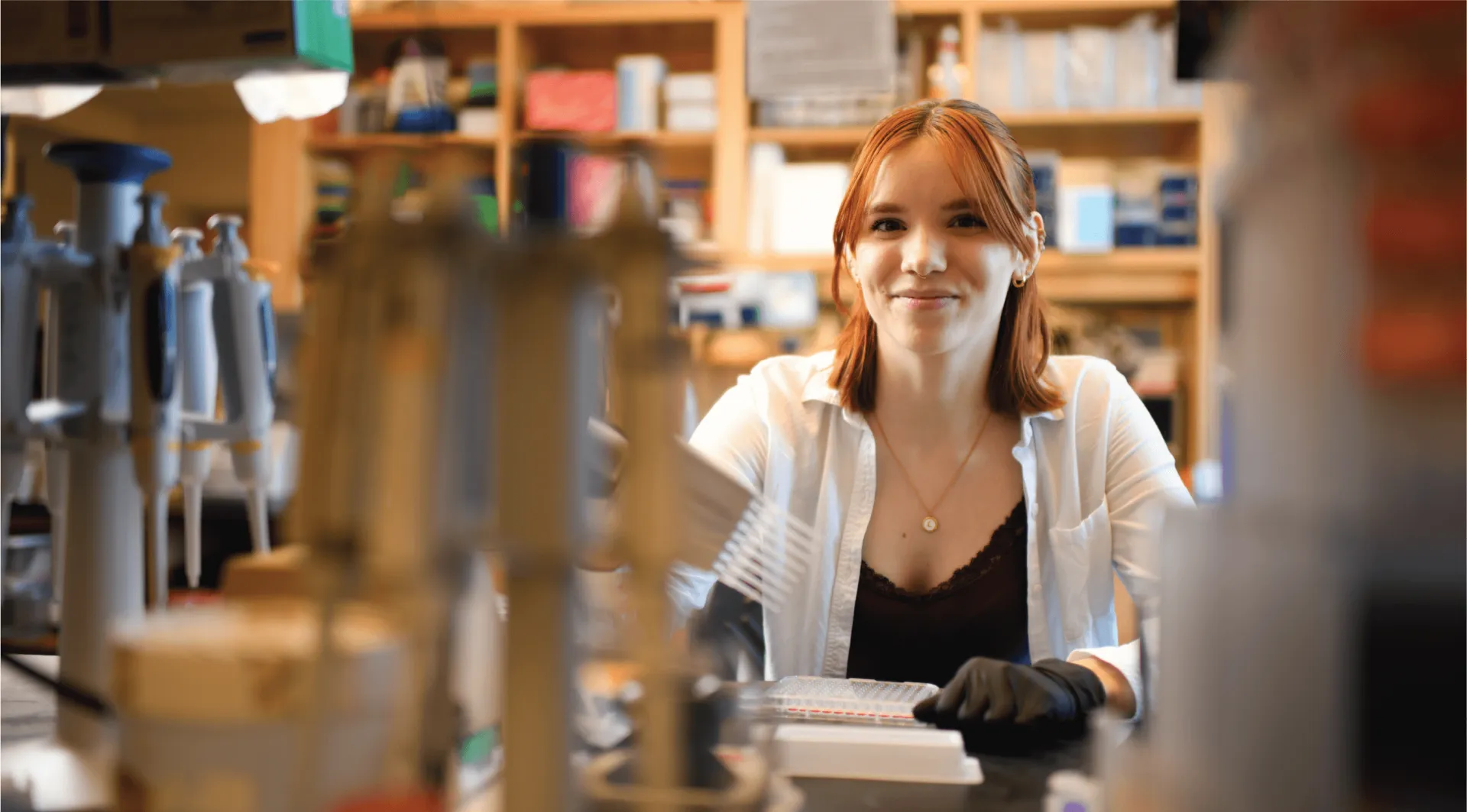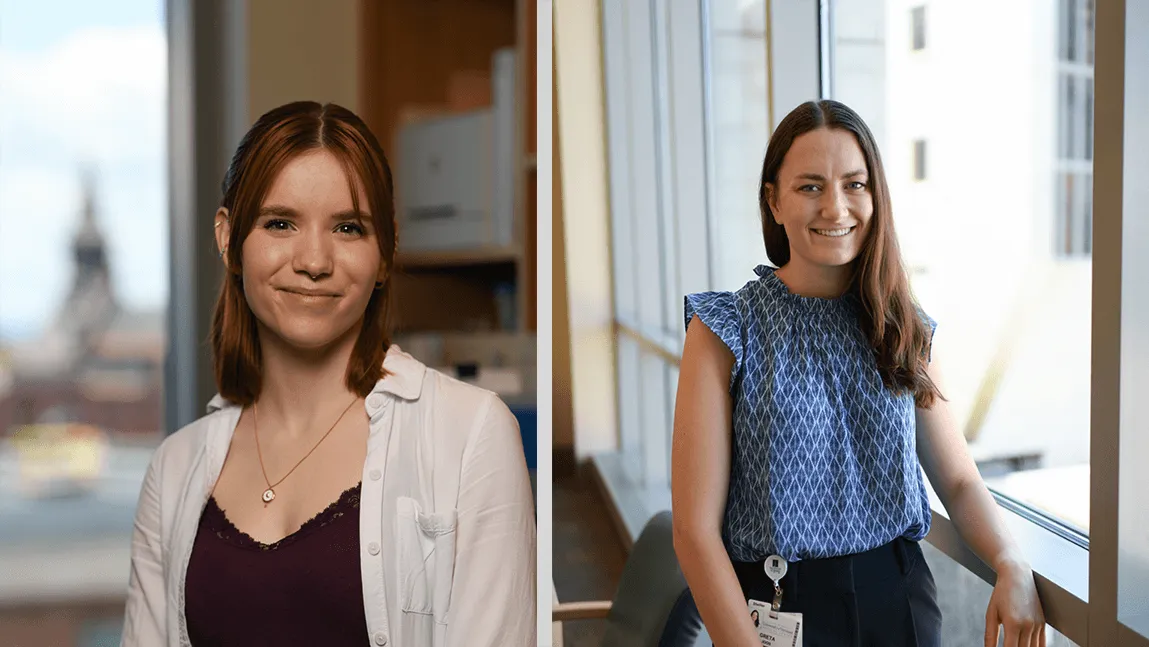UVM Cancer Center pre-doctoral candidate, Maggie Trout, was recently awarded a Pre-Doctoral Fellowship from ChadTough Defeat DIPG. The fellowship is awarded to outstanding pre-doctoral and post-doctoral trainees to help develop the next generation of leaders in DIPG research. We sat down with Maggie to learn more about the impact of this fellowship on her career and research.
Can you tell us a little about how the ChadTough Defeat DIPG Fellowship Grant will shape your graduate school experience and career trajectory?
This fellowship will provide a funding source for the rest of my graduate school experience, allowing me to continue my research. Additionally, this allows me to go to the ChadTough annual research retreat, where I can connect with other scientists studying DIPG/DMG to discuss research, form connections, and learn about the amazing work of the ChadTough Defeat DIPG Foundation.
What research will this fellowship support?
My research focuses on Diffuse Midline Glioma (DMG), which includes Diffuse Intrinsic Pontine Glioma (DIPG), a highly aggressive form of brain cancer that primarily impacts children under the age of 11. There is currently no cure for this cancer, and the average survival tragically remains less than a year past diagnosis. This new funding will allow me to investigate mitochondrial reactive oxygen species (ROS) scavenging as a potential new drug target in DMG.
Cells, especially cancer cells, produce ROS as a byproduct of their metabolism. ROS must be eliminated from cells to prevent cellular damage. Previous studies have shown that inhibiting cancer cells’ ability to remove ROS can result in cancer cell death. I am particularly interested in studying how inhibiting the action of mitochondrial ROS scavengers affects DMG cells, and whether we can use specific chemotherapy drugs to target this process. I am also testing if we can combine this approach with other chemotherapies to increase their efficacy in DMG. If successful, this work could lead to the introduction of a new and more effective treatment for DMG patients.
How will the work you conduct under this award impact our community?
This work could impact the future treatment options for individuals diagnosed with DMG. While Diffuse Midline Glioma is, thankfully, a rare disease, this could be greatly impactful to those affected, and may have broader implications for other forms of brain cancer.
What is your long-term career goal? And how will this fellowship help you get there?
Long-term, I would love to contribute to the development of precision cancer therapies, especially through designing and applying molecular and genetic tools to better understand, diagnose, and treat cancer. I’m particularly interested in how we can tailor treatments to the individual and ultimately improve outcomes for patients who currently have limited options. Through this fellowship, I’ve had the opportunity to work on projects directly related to that goal, which has deepened my commitment to this field. It also connected me with families of children affected by DMG, which has made me very passionate about this cancer.
Can you describe some ways the UVM Cancer Center has contributed to your success?
I participated in the UVM Cancer Center Summer Research Fellowship in 2024, which was an amazing experience that allowed me to do much of the research that led to this fellowship being awarded. Additionally, being a part of the Cancer Center community has helped me grow as a scientist.
Is there anything else you would like to share?
ChadTough Defeat DIPG was started by two families who lost their children to DIPG, and many more families are involved in it today. I am incredibly inspired by the commitment that these families have to making an impact and changing the landscape of this devastating cancer.
Learn more about the ChadTough Foundation - https://chadtough.org/about-us/meet-chad-and-michael/.

